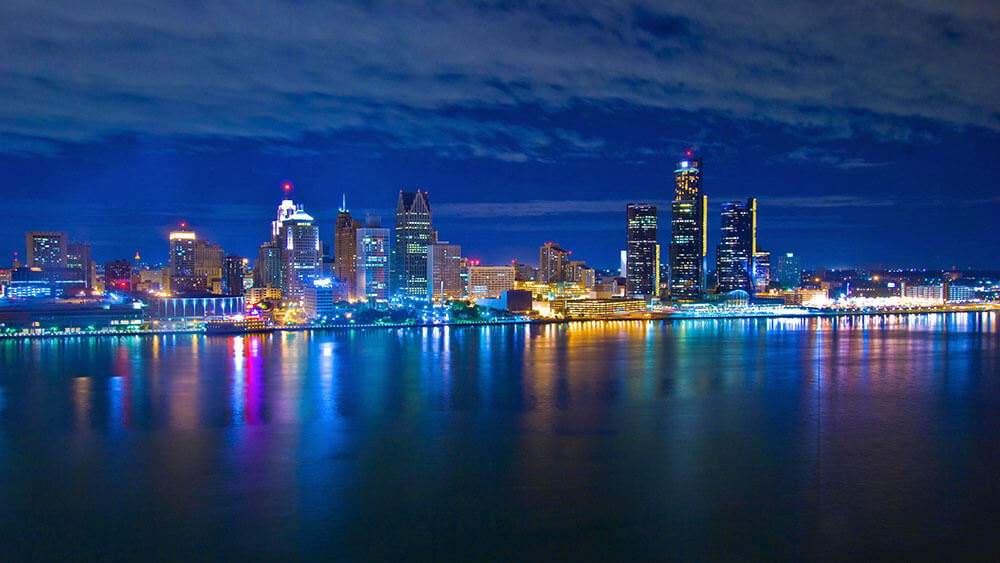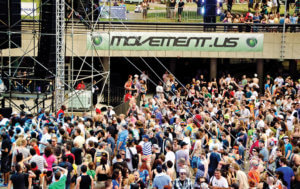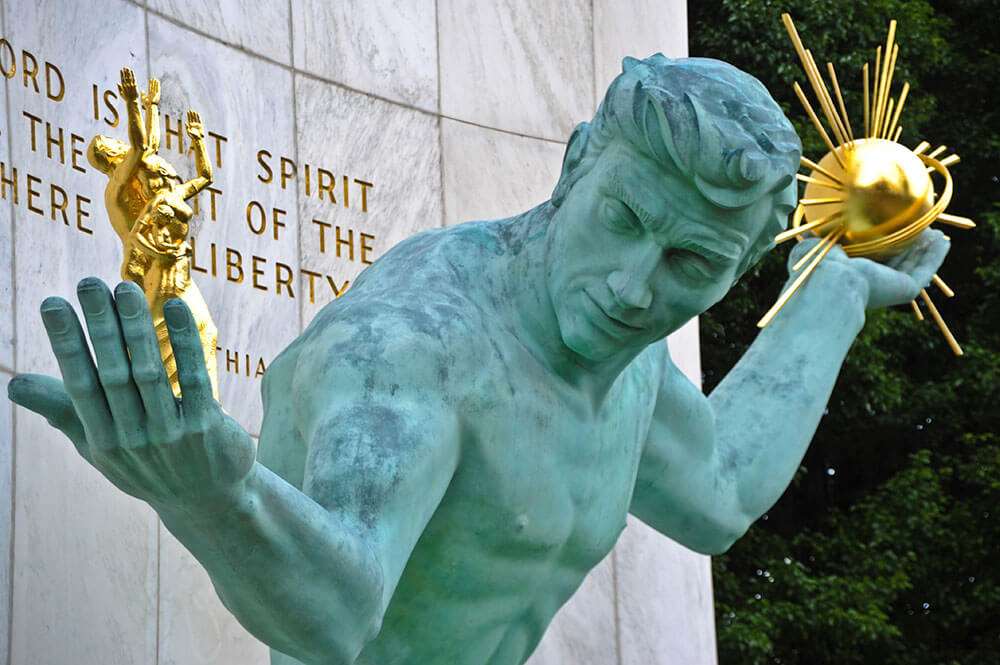
“The conversation about Detroit has certainly created demand as a meeting destination,” said Dave Beachnau, senior vice president, sales, marketing, and sports, Detroit Metro Convention & Visitors Bureau. (Vito Palmisano photo)
“Detroit vs. Everybody” is the slogan that has helped define the Motor City since Tommey Walker Jr. started printing it on T-shirts in 2012. It made sense, considering that Michigan’s largest city has made headlines for its population decline, bankruptcy, a jailed former mayor, and the struggles of the U.S. automotive industry since the beginning of the 21st century. Even Eminem and Big Sean joined the refrain by making “Detroit vs. Everybody” the name of a song.
But there’s now a lot less for the city to be defensive about, as I discovered for myself when I was hosted by the Detroit Metro Convention & Visitors Bureau to attend the Fifteen Seconds Unlimited first-ever event in the U.S. on Sept. 20–21. The city is in the midst of a renaissance.
The District Detroit, a 50-block area that includes 180,000 square feet of new retail and restaurants, opened in 2017 and brought all four of the city’s professional sports teams downtown. Commercial real estate company Bedrock has four redevelopment projects — worth more than $2 billion in total — in the works. Microsoft, LinkedIn, Amazon, and other tech companies have established a presence in downtown Detroit in the past three years.
The Cool Kids Are Coming to Detroit
To get a sense of Motor City’s transformation, however, I didn’t need to take big money or big companies into account. Instead, I just headed over to the Detroit Foundation Hotel, my home base during my stay in Detroit.
Located on the site of the former headquarters of the Detroit Fire Department, the 100-room property features headboards made from reclaimed wood from Architectural Salvage Warehouse of Detroit, custom light fixtures, and custom wallpaper with historic Motor City architecture scenes.

The Movement Electronic Music Festival is an annual celebration that takes place around Memorial Day weekend in Detroit. (Alexia Sarmiento/Picture Box Media)
The environment seems to capture the creative class of artists, musicians, chefs, and entrepreneurs who are writing the city’s next chapter on innovation. On Tuesdays and Thursdays, many of those artists are sharing their stories in the hotel’s own podcast studio. They’re building on the city’s legacy of invention — the Model T was born here in 1908, and some 50 years later, Motown started making music history from a house on Grand Boulevard.
“There’s so much happening in Detroit right now,” Emily Childers, director of sales at the Foundation, told me. “And we have podcasters who are using the studio to help share those stories. It’s a way to keep our guests updated on reasons they should come back and what they should see while they’re here.”
Childers also was taken in by Detroit’s buzz. Originally from Michigan, she returned to her home state from Chicago to help open the Foundation’s doors. Her move has paid off. Time named the Foundation one of its World’s Greatest Places in 2018. It’s just one of the many lists that Detroit has landed on in recent years — including a spot on The New York Times’ annual list of 52 Places to Go and the No. 2 ranking in Lonely Planet’s Top Cities to Visit. Group Business Is Booming, Too Event organizers also are getting in on Detroit’s rebirth.
“We simply fell in love with the city during our first visit in 2017 and wanted to be part of the current movement that brings Detroit back on track again,” Nino Groß, director of communications, Fifteen Seconds Inc., told Convene. “Its creative vibe and massive business potential had us at ‘hello.’ Fifteen Seconds is for all curious minds, and it seems as there were a lot of them doing passionate work in and around Detroit at the moment.”
Other organizers are taking advantage of the Cobo Center’s recent $279 million renovation and expansion. The American Society of Association Executives (ASAE) brought more than 5,300 leaders to the city in 2015. The FIRST Championships — an annual robotics competition — will attract approximately 50,000 people to Detroit for each of the next three years. And in 2020, 125,000 delegates will arrive for the Alcoholics Anonymous International Convention at Ford Field.
“The conversation about Detroit has certainly created demand as a meeting destination,” Dave Beachnau, senior vice president, sales, marketing, and sports, Detroit Metro Convention & Visitors Bureau, told me. “Our new campaign, ‘It’s Go Time,’ only reinforces that interest. We’re in the midst of an unprecedented time in our city’s history. You can really feel the energy.”
Interest from hotel developers, Beachnau said, is at an all-time high. Detroit-based luxury watchmaker Shinola is nearly finished with the construction of its first-ever hotel on the site of a refurbished department store, and Marriott will open the doors on its Element brand in December.
The most exciting opening on the horizon, though, will not be tied to the hospitality industry. The old Michigan Central Station, a grand train depot
that hasn’t welcomed a passenger in 30 years, is about to get a new lease on life as Ford’s new research and development hub for electric and autonomous vehicles. It’s fitting that the car company will help write Motor City’s next innovation chapter as it simultaneously changes the course of automotive travel.
It’s quite possible that Detroit vs. Detroit is now more apt than Detroit vs. Everybody, with the city filled with creative thinkers and business visionaries constantly outdoing each other.

The monument located at the Coleman A. Young Municipal Center is appropriately titled “The Spirit of Detroit.” (Vito Palmisano photo)
